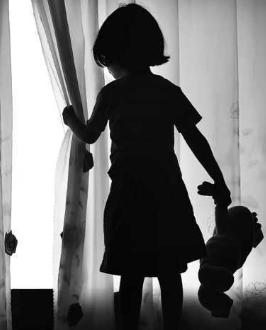DAINIK NATION BUREAU : A 11 year old girl gang raped in Maihar Madhya Pradesh near shrine on July 28. This chilling incident has sent shockwaves across the nation, a young woman was subjected to a brutal gang rape in Madhya Pradesh, leaving her physically and emotionally scarred. It has raised question mark on the women safety.
The Horrific Incident
According to the available reports, the victim, a young woman, was abducted and brutally gang-raped by a group of perpetrators in Madhya Pradesh. Her body was found bearing the marks of a heinous assault, with bite marks all over it, reflecting the horrifying and sadistic nature of the crime. This shocking incident has once again brought to the forefront the grave dangers that women in India face daily, both in public spaces and even within the supposed safety of their homes.
The Alarming Prevalence of Sexual Violence
Tragically, this incident is not an isolated case. India has long struggled with a deeply ingrained culture of sexual violence and a dishearteningly low conviction rate for such crimes. Despite legal reforms and increased public awareness, the safety and security of women continue to be compromised. Numerous factors, including patriarchal mindsets, inadequate law enforcement, and the stigmatization of survivors, contribute to this alarming prevalence of sexual violence.
The Need for Comprehensive Solutions
Addressing the issue of sexual violence against women requires a multifaceted approach that involves various stakeholders, including the government, law enforcement agencies, civil society, and individuals.
Stringent Legal Measures: While India has made efforts to amend its laws to address sexual offenses, there is still a long way to go. Effective implementation and stricter punishments for perpetrators are essential to act as a deterrent and ensure justice for survivors.
Empowering Law Enforcement: Proper training and sensitization of police officers are crucial to handle cases of sexual violence with empathy and efficiency. A survivor-centered approach can encourage more victims to come forward and report such crimes.
Promoting Gender Equality: Challenging deeply rooted gender stereotypes and promoting gender equality in all spheres of life can go a long way in creating a more respectful and safe society for women.
Comprehensive Support for Survivors: Survivor support systems, including counseling, legal aid, and protection from intimidation, must be strengthened to aid the healing process and enable survivors to seek justice without fear.
Education and Awareness: Implementing gender-sensitization programs in schools and colleges can play a pivotal role in shaping attitudes and fostering respect for women’s rights.
The Role of Society and Individuals :
As a society, it is incumbent upon us to break the silence and actively engage in discussions about gender-based violence. Empathy, solidarity, and support for survivors are vital components of creating an environment where victims feel safe to share their experiences without fear of judgment.
Additionally, individuals must introspect and challenge their own attitudes and behaviors towards women. Small but significant steps, such as respecting boundaries, intervening when witnessing harassment, and supporting survivors, can collectively contribute to a safer society.
The brutal gang rape in Madhya Pradesh is a stark reminder of the urgent need for a comprehensive transformation in India’s approach to addressing sexual violence against women. We must unite as a society to demand and create safer spaces for women, where they can live without fear of violence. It is time to break the cycle of silence, hold perpetrators accountable, and work towards building a more compassionate, respectful, and just society for all. Only through collective efforts can we hope to protect and empower our women and bring an end to the scourge of sexual violence.
 Dainik Nation News Portal
Dainik Nation News Portal

